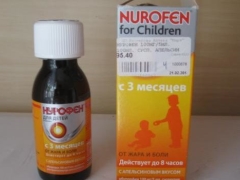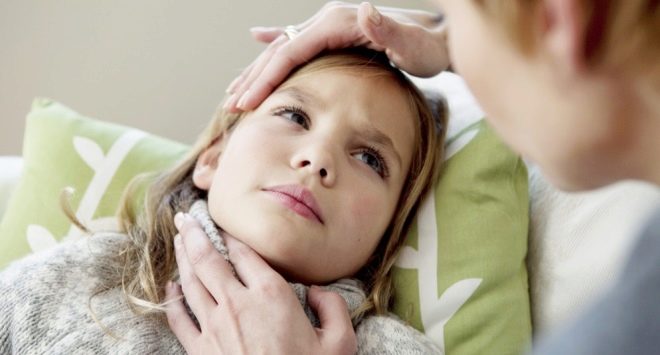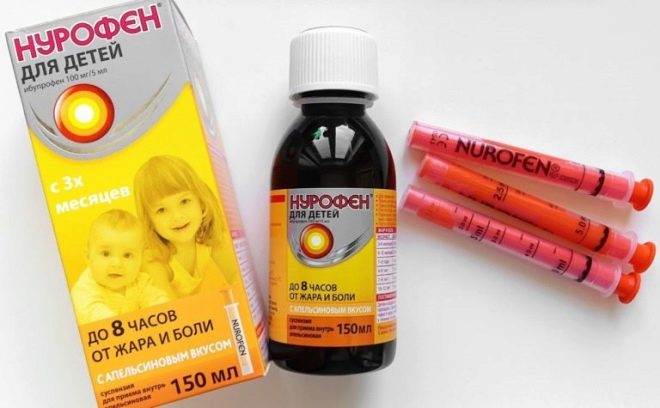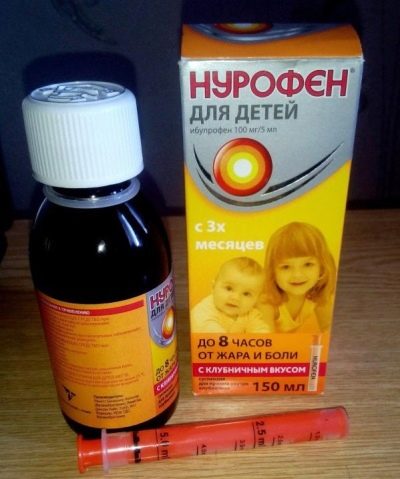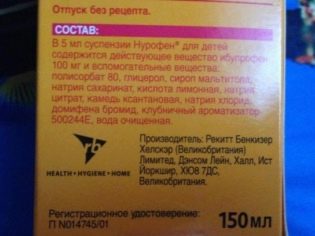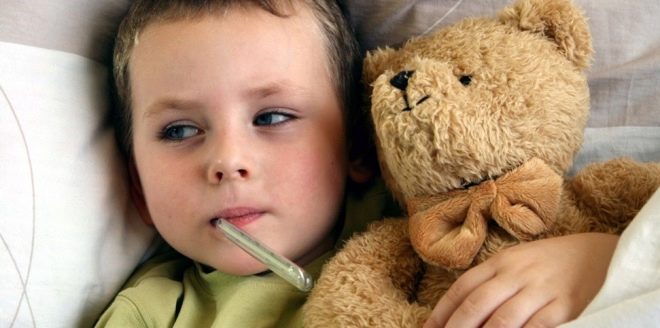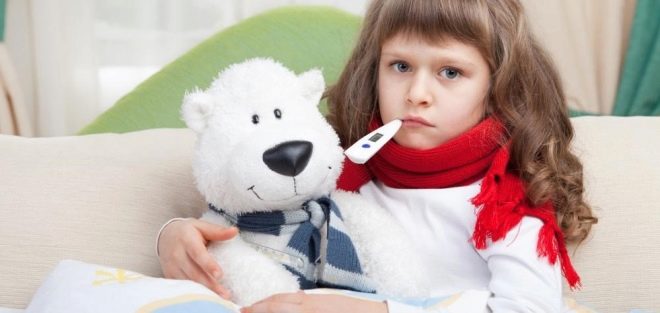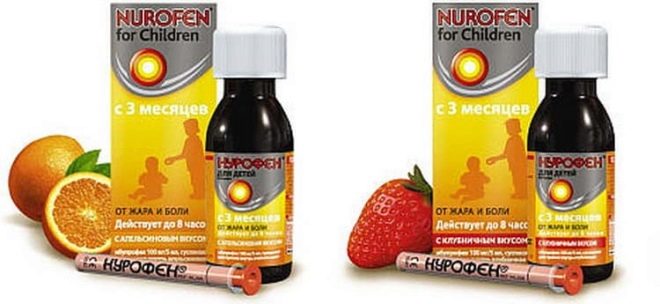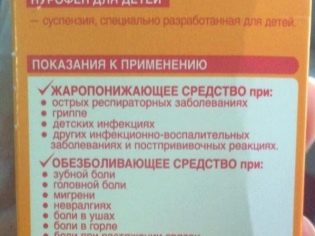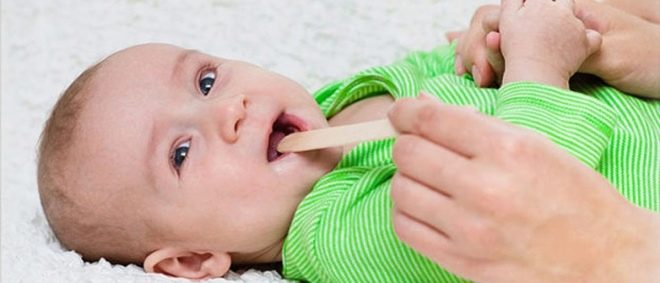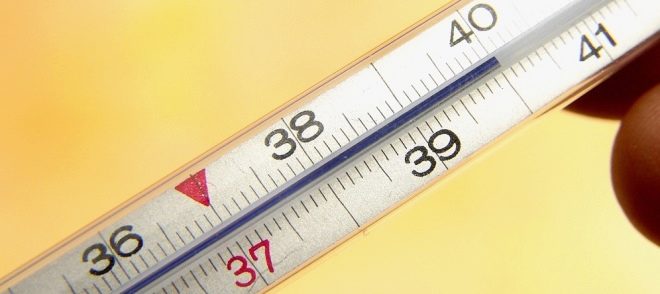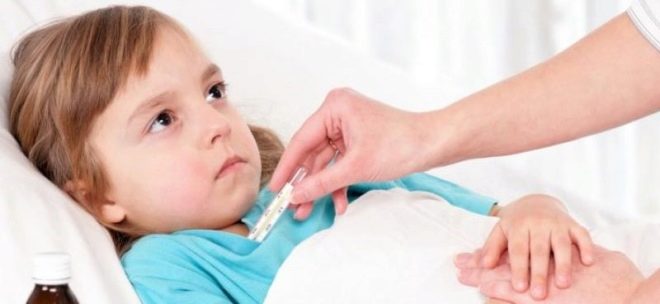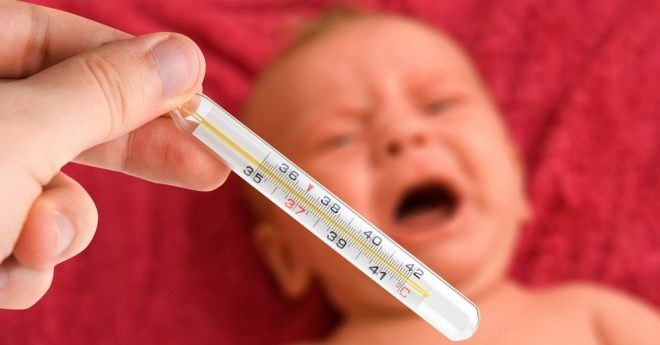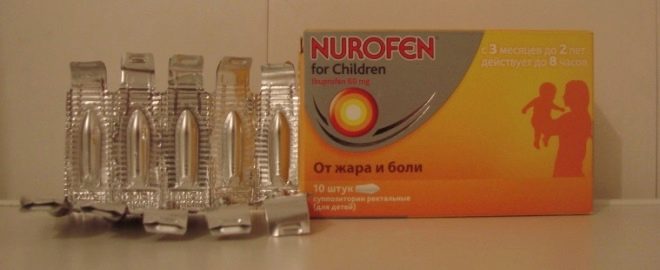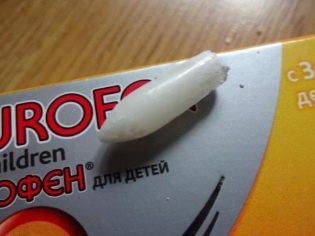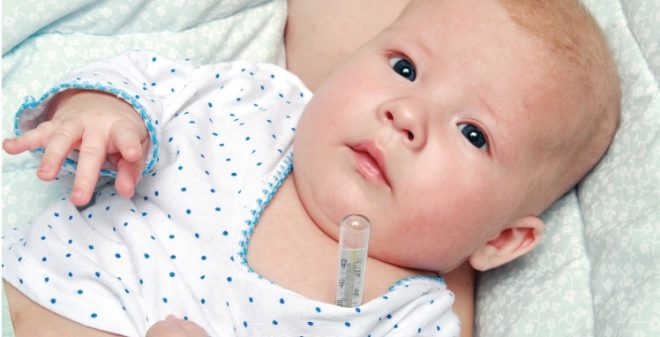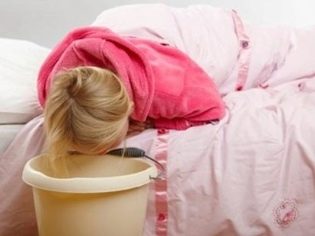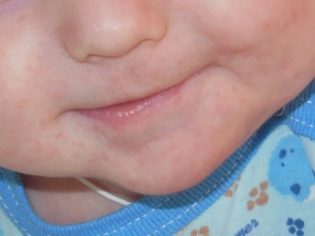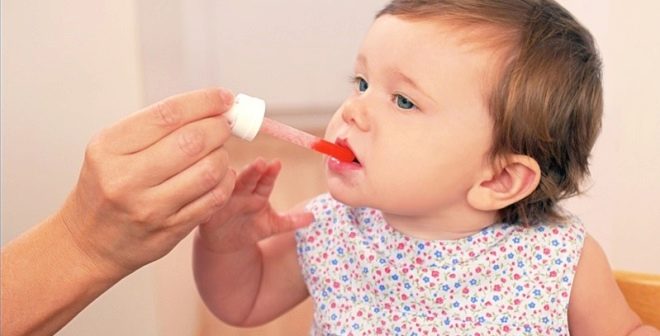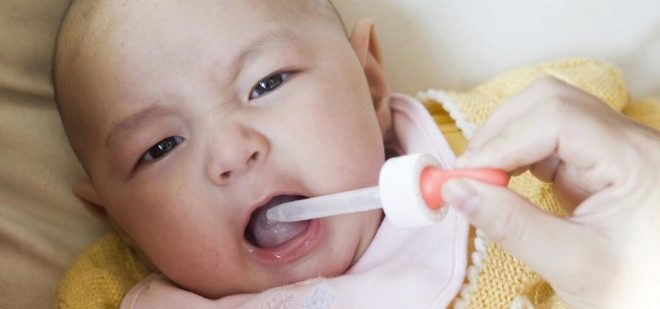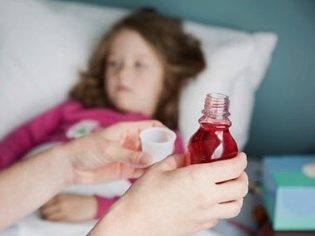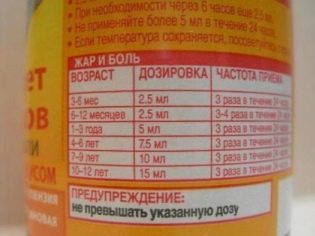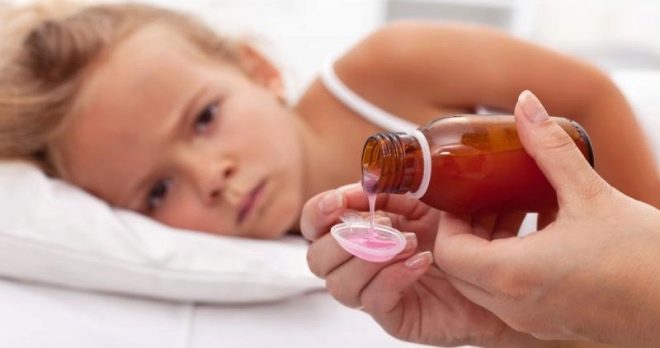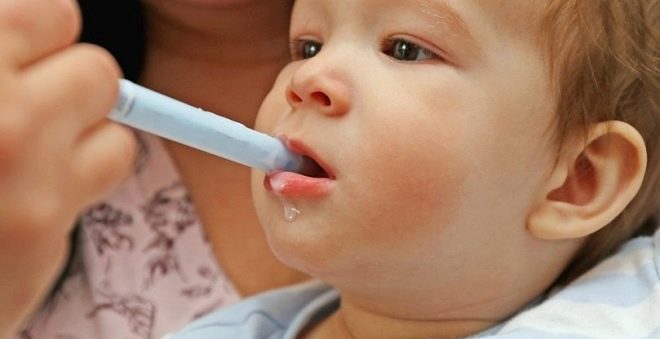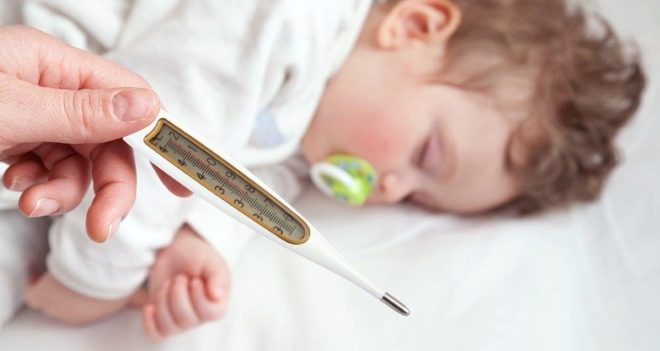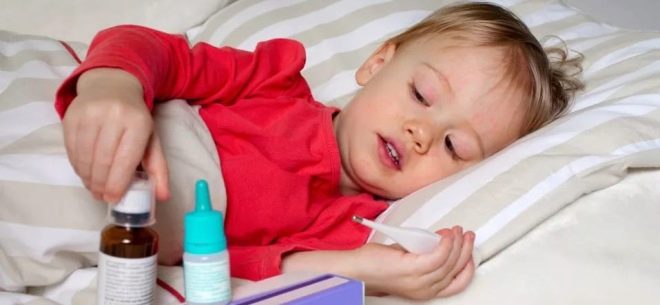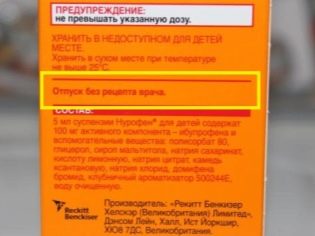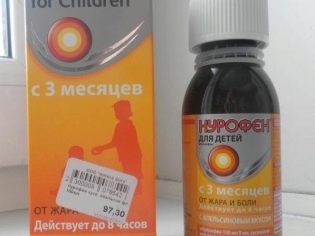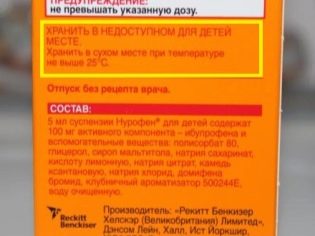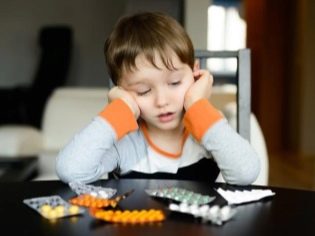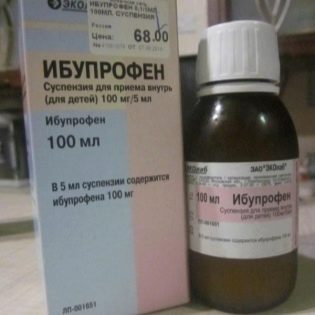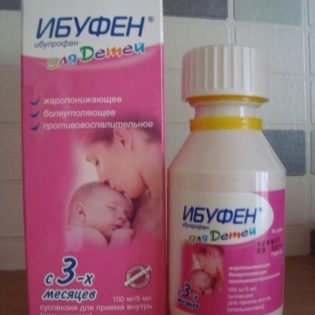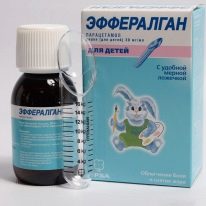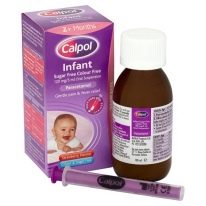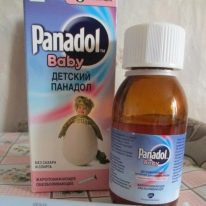Suspension "Nurofen for children": instructions for use
When an adult's temperature rises or pains occur, he often takes a Nurofen tablet. This medicine is a fairly popular anti-inflammatory nonsteroidal remedy that helps with sore throat, fever, headaches and other problems.
However, it is difficult for children to swallow the tablet form, so Nurofen is produced in suspension and rectal candles especially for small patients. On the packaging of such forms there is a corresponding mark - “for children”. When the use of Nurofen in the form of a suspension in babies is justified, in what dosage is this medication used and how can it be replaced if necessary?
Release form
Suspension Nurofen is represented by almost white liquid, which has a syrupy consistency, so many parents sometimes call this medicine syrup. The drug is produced with two different flavors - orange and strawberry. The suspension is sold in plastic bottles, inside which there is 100 ml, 150 ml or 200 ml of the medicine. A special syringe dispenser with graduations in milliliters is attached to the bottle, which allows you to accurately measure the right amount of medication.
Composition
The most important component of the drug, which provides the therapeutic effect of the suspension, is ibuprofen. From 5 ml of the drug the patient receives such a substance in the amount of 100 mg. In addition, the medication includes sodium citrate, glycerol, xanthan gum and polysorbate 80. Other ingredients include sodium chloride, domiphen bromide, and citric acid.
For a pleasant smell and for a sweet taste, sodium saccharinate and maltitol syrup, as well as orange or strawberry flavor are added to liquid Nurofen. The remainder of the drug is purified water.
Dyes and sugar in suspension are missing.
Operating principle
Since Nurofen is referred to as nonsteroidal anti-inflammatory drugs, the suspension has such characteristic for all means of this group of effects:
- Antipyretic.
- Analgesic.
- Anti-inflammatory.
This effect is based on the ability of ibuprofen. inhibit the synthesis of active substances called prostaglandins. In particular, the drug affects the enzymes that "control" the formation of prostaglandins - cyclo-oxygenases of the 1st and 2nd types. Since the activity of inflammation, the appearance of pain and the rise in body temperature depend on the production of prostaglandins, the intake of Nurofen affects all these processes.
Once in the digestive tract, the active ingredient of the suspension is very rapidly absorbed. The therapeutic effect of this form of medication begins to manifest itself 40-60 minutes after administration and lasts up to 6-8 hours. In the blood, almost all of ibuprofen binds to proteins, and in this form is transferred to the site of inflammation and other organs. Further conversion of such a substance takes place in the liver, therefore liver pathology can affect the therapeutic effect of the drug.
Excretion of Nurofen occurs mainly with urine and only in small quantities with bile.
Indications
The drug is most in demand to reduce the temperature, the cause of which was an increase in the disease or some other pathological condition. The medication is given if the child has flu, scarlet fever, pyelonephritis, measles, ear inflammation, ARVI, intestinal infection and other inflammatory processes or infections. The drug is also in demand in case of a temperature response to vaccination, and is also used in teething.
For pain, Nurofen in the form of a suspension is used if the pain syndrome is characterized as moderate or weak. The drug helps to get rid of:
- Sore throat.
- Toothache.
- Headaches.
- Pain due to sprains, bruises, fractures and other injuries.
- Earache.
- Muscle aches.
- Joint pain.
- Postoperative pain.
- Neuralgia.
From what age is appointed?
According to the information in the annotation to the suspension, this Nurofen can be used from the age of three months. Newborns and babies of the first three months of life with a weight of less than 5 kilograms are contraindicated. Do not prescribe medication and children older than 12 years, since such patients require a fairly high dosage (instead of a large volume of suspension, it is more convenient to take Nurofen tablets or forte capsules).
When is discharge at an elevated temperature?
The most common reason for giving a child a suspension is fever. Most doctors advise the use of such Nurofen, if the number above +39 degrees appears on the thermometer.
But sometimes the medication is justified at lower rates, for example:
- With neurological problems in the child or seizures due to high fever in the past. Such babies have a very high risk of febrile convulsions at temperatures below +39 degrees.
- With severe illness of the child, for example, if he has a serious pathology of the heart.
- When overheating or temperature reaction to vaccination. In contrast to fever during infection, in such situations, a rise in temperature does not contribute to the fight against the pathogen, but only worsens the condition of the toxin.
- With poor temperature tolerance by the patient. In some babies, the general condition with fever worsens so much that it is advisable for them to “churn” the temperature before it rises to +39 C.
What is better - syrup or candles?
Both such forms of Nurofen are more preferable than tablets, because a solid medicine is hard to swallow for a small child. To decide on a suitable variant of the child drug, It is necessary to take into account such nuances:
- First, the action of the candles begins earlier than the drug in suspension, since ibuprofen is absorbed from the large intestine faster than when the drug enters the stomach first and then the small intestine.
- Secondly, in addition to ibuprofen, there are only solid fats in the composition of candles, and the suspension includes many other chemical additives. This fact is important for children with a tendency to allergies, in which suppositories do not usually provoke a negative reaction, and a drunk syrup can cause rashes, itching and other symptoms of allergies.
Contraindications
Nurofen in suspension is not used:
- With a patient weight less than 5000 grams.
- If you are hypersensitive to ibuprofen or another syrup ingredient.
- If you are allergic to any other anti-inflammatory drugs with non-steroid structure.
- With pathologies of the gastrointestinal tract, in which there is inflammation, erosion or ulceration of the wall (with ulcerative colitis, gastric ulcer, Crohn's disease, etc.).
- With renal failure in the severe stage.
- With liver diseases (if they are in the active stage), as well as with severe insufficiency of the function of this organ.
- With hemorrhagic diathesis, hemophilia and other problems with blood clotting.
- When bleeding in brain tissue or other localization.
- With severe heart failure.
- With hyperkalemia.
- When fructose intolerance.
In addition to such a rather large list of contraindications, there are also many pathologies in which the use of the suspension should be under the supervision of a physician. For example, although the medicine does not include sugar, but Children with diabetes are given it with increased caution.
Dehydration, high blood pressure, autoimmune disease, anemia, and many other pathologies can affect Nurofen treatment. Therefore, if your child has any illnesses, you should consult a doctor.
Side effects
In some patients taking the suspension, such negative symptoms, as:
- Nausea, discomfort in the stomach and other signs of a negative effect of the drug on the gastrointestinal tract.
- Skin rash, redness, runny nose, dermatosis and other allergic reactions.
- Exacerbation of asthma, if the child has such a pathology.
- Headaches or sleep disturbance.
In rare cases, suspension treatment provokes disorders of blood formation, kidney function, anaphylactic reaction, gastric bleeding, ulcerative stomatitis, peripheral edema, and other problems.
If at least one of these adverse symptoms occur, you should immediately stop giving the drug to the child and contact your doctor.
Application
Instructions for use recommends the use of liquid Nurofen inside using a dosing syringe, which is sold with a vial of suspension. The medicine must be shaken so that all its components are evenly distributed in the water. The syringe is inserted into the neck, then the vial is inverted and the medication is dialed to the desired mark.
On the piston of the syringe placed in the child’s mouth, it is necessary to press slowly so that the suspension flows smoothly. After giving the drug to the baby, the syringe should be rinsed in warm water and left to dry in a place that is inaccessible to the child.
Suspension is recommended to give children after a meal, so that its components do not irritate the digestive tract. If the baby is breastfed, the medicine is given after feeding. Older children are offered a drink after one of the meals.
Dosage
To determine the right dose of medication, you need to know both the age of the child and his weight, since both of these parameters affect the amount of ibuprofen that will act if you have pain or fever.
A single dose for children 3-12 months is 2.5 ml of suspension, which corresponds to 50 mg of the active ingredient. but frequency of use, as the maximum dosage per day in babies under six months and between the ages of 6 months and a year is different:
- Babies weighing from 5,000 to 7,600 grams at the age of 3-6 months are given the drug no more than three times, that is, such a small patient is allowed to take no more than 7.5 ml of medication (150 mg of ibuprofen) per day.
- If the child weighs from 7700 to 9000 g (and this weight is typical for babies 6-12 months), it is permissible to give the suspension three times and four times, and the maximum dosage for such babies is 200 mg of ibuprofen, obtained from 10 ml of medicine.
Patients older than a year give Nurofen three times a day, and a single and daily dose will be as follows:
- For a 1-3-year-old child (weighing 10-16 kg) - 5 ml per reception, and a maximum of 15 ml per day.
- For 4-6-year-old patients (weight from 17 to 20 kg) - 7.5 ml at a time, maximum 22.5 ml per day.
- For 7-9 year old children (weight from 21 to 30 kg) - 10 ml per reception and no more than 30 ml per day.
- For 10-12-year-old patient (weight from 31 to 40 kg) - 15 ml at a time, and up to 45 ml per day.
Duration of use
If the cause of the suspension is a high body temperature, the use of the drug is allowed for 3 days. In the absence of improvements on the third day of use (if the symptoms do not disappear or worsen), it is necessary to discontinue therapy and call a doctor. This tactic is recommended for children older than six months. If the child is from 3 to 6 months, then the observation of the response to treatment should be no more than a day.If there is no improvement within 24 hours after taking the medication, you should immediately contact your pediatrician.
If Nurofen was prescribed to the child as an anesthetic, it is permissible to give it up to 5 days. If pain persists on the fifth day of treatment, the continuation of the medication should be discussed with your doctor.
Increased temperature after vaccination
If a fever has arisen as a reaction to immunization, then the suspension is often given once in an age-old dose, for example, a baby of 5 months must be given 2.5 ml of medication. In most cases, this is enough to improve the condition of a small patient, but sometimes you have to give the medicine again. This is permissible to do after 6 hours, giving the drug in the same dosage as the first dose.
More than 5 ml of the suspension is not given to a child who has been vaccinated, and if the temperature reaction persists, then see a doctor.
Overdose
If you accidentally give a child a syrup in a much larger dose than recommended by the doctor or noted in the annotation, this will lead to nausea, headache, abdominal pain, tinnitus and other negative symptoms. In the most severe cases, signs of exposure to ibuprofen on the central nervous system (for example, drowsiness, convulsions, etc.) appear, as well as respiratory depression, liver damage, renal impairment and other dangerous conditions are possible.
If an overdose is found within one hour after taking an overdose of the suspension, wash the stomach and give activated charcoal to the patient. If later detected, the child is given a lot of alkaline drink to speed up the removal of the medicine by the kidneys.
If the condition is worsened, the baby is observed and symptomatic therapy is prescribed.
Interaction with other drugs
Many medicines affect the use of Nurofen, including glucocorticoids, anticoagulants, acetylsalicylic acid, some antibiotics and other drugs. Therefore, the possibility of treating a suspension of children taking any other drugs should be discussed with a pediatrician or another specialist who is observing the child.
Terms of sale
Suspension Nurofen is one of the OTC drugs, so there are no difficulties with its purchase in pharmacies. The average price of a bottle with a capacity of 100 ml is 120-140 rubles, a bottle of 150 ml of medicine is about 190 rubles, and a package with 200 ml of suspension is about 250 rubles.
Storage features
It is advised to keep the drug at home in a place where high temperature will not affect it (the optimal storage temperature is the range + 15 + 25 degrees Celsius), high humidity or the direct rays of the sun. It is also important to hide the suspension well from children to eliminate the risk of accidental ingestion. The shelf life of this form of Nurofen is 3 years. After its completion (the date must be clarified on the package), giving medicine to young patients is unacceptable. After opening the bottle expiration date is not changed.
Reviews
On the use of the suspension Nurofen and doctors, and parents respond mostly positively. This medicine is called effective and convenient to use in babies. According to moms, the drug quickly enough and for a long period (6-8 hours) "knocks down" the temperature and eliminates pain, relieving the child's condition.
The drug is praised for its pleasant taste, the presence of a convenient measuring syringe in the kit, the absence of sugar in the composition and an acceptable cost.
Only occasionally there are complaints that the suspension begins to act for a very long time, its taste is too sweet, or the drug auxiliaries have caused allergies.
Analogs
The drug capable of being a complete replacement for Nurofen can be called Ibuprofen, which is also produced in the form of a suspension containing 100 mg of the same active ingredient in 5 milliliters.This medicine is somewhat cheaper, so it is often chosen instead of Nurofen, because the indications, age range, possible negative effects and contraindications for such drugs are the same.
In addition, paracetamol preparations can replace both Nurofen and Ibuprofen in the treatment of pain and fever. They are considered the safest for babies and are used in infants. These drugs include Children's Panadol Efferalgan, Calpol and Paracetamol.
You can watch a video review of this preparation a little below.
